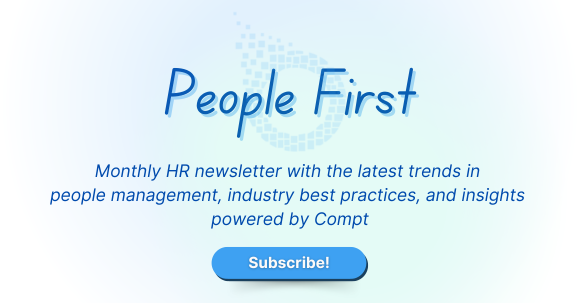If you’ve ever felt unheard in the office, I have the content for you. In the labyrinth of corporate culture, rising TikTok star Lisa Beasley, lovingly known as "Corporate Erin," has emerged as a voice of the modern workforce. With her candid and humorous take on office life, Erin offers more than just relatable content – she provides valuable lessons for HR and management. That’s right, she isn’t just for the stressed, unseen, burnt-out employee. Here's why corporate leaders should be tuning in to her feed.
Follow her on TikTok @lisabevolving or on LinkedIn #CorporateErin.
Authenticity à la Corporate Erin
Let's zoom in on Corporate Erin's signature move - the deep swallow and that nasally voice that's more recognizable than your morning alarm. Erin's skits are a masterclass in satire. With each exaggerated nod and over-the-top policy enactment - GULP - she perfectly encapsulates the often frustrating reality of nonsense workplace policies.
"Corporate Erin" is not just an entertainer; she’s a barometer for the modern workplace. Her approach to discussing work life offers critical insights for HR and management. In an age where employee engagement is key, her content provides a blueprint for misconnecting with and misunderstanding the workforce.
Her humor and injection of overused corporate jargon that we’re all sick of is a beacon of truth, shining a light on the disconnect between HR practices and the people they affect. And I have a hard stop in 10 minutes, so I’m going to go ahead and jump right in.
A Window into Employee Experience
Through her vignettes, Erin’s content sparks a deeper conversation about the employee experience. This is a goldmine for HR and management, providing a clearer understanding of employee needs and aspirations, which can inform better workplace policies and practices.
And I’m not just talking about her recent hilarious take on “Maternity Stay” where you have to log into the portal 9 months before you deliver so you can get your “two to three days off.”
Each TikTok is like a page from the diary of every office worker – from eye-roll-inducing Zoom meetings about meetings to cringe-worthy emails. And while she represents the stereotypical “HR manager” or “Manager for the Manager of Logistics from Management McManagement” it also serves as a reflection of very real workplaces in the US. Her content resonates because it's painfully relatable, serving as a wake-up call for HR departments - and managers - everywhere.
One person said (of the sometimes 25,000 comments per video): “This is SPOT ON. The corporate accent, the nonsense, the talking for 30 minutes and saying nothing.”
While humor is a staple of Erin's content, the comment sections on her videos don’t shy away from serious topics. And often, people are TRIGGERED.
Traditional vs. Modern HR Practices:
Trends like these raise an important question in workplaces everywhere: are we stuck in the old way of doing things?
Think about it. Traditional HR often clings to rigid structures and top-down communication, but Erin’s content highlights how these practices - circling back, meaningless lunch & learns, going 2+ hours over in a meeting that could have been an email - can miss the mark. It’s absurdist humor based on the often absurd realities we’re living in the world of work.
The modern approach? Think flexibility in work schedules, open and honest communication channels, and personalized employee engagement strategies.
Erin's humor aligns with current HR trends advocating for simplicity, authenticity, and empathy in workplace interactions. Her jabs at convoluted corporate speak underscore the need for clear, direct communication – a trend backed by numerous studies and employee surveys.
And before you say, “It’s not that deep. It’s just joking around.” – what Erin does so brilliantly (intentionally or not) is reflect the often unspoken truths of the workplace. She peels back the curtain on the performative aspects of corporate life, reminding us that sometimes, HR can miss the mark on understanding employee needs.
And, like I said earlier, when people feel seen, they feel compelled to share. They lament their less-than-desirable work culture, the things that drove them to quit, and what they wish they could find in their “dream” workplace.
It’s here managers and HR leaders can learn incredibly valuable lessons. Sure, all of us HR software companies are out here saying the same things and you’re likely reading a bunch of it in thought leadership (like this) or hearing it from someone on stage at another HR conference. But there’s something about hearing it from real people - the very people who could be your next interview candidates - that just cuts deeper.
So… are you listening?
As Erin would say, it’s time to “Zoom out and take a 30,000-foot view of the core competencies that you bring to the table.”
Like what you're reading? Then you'll looooove our People First Newsletter.

